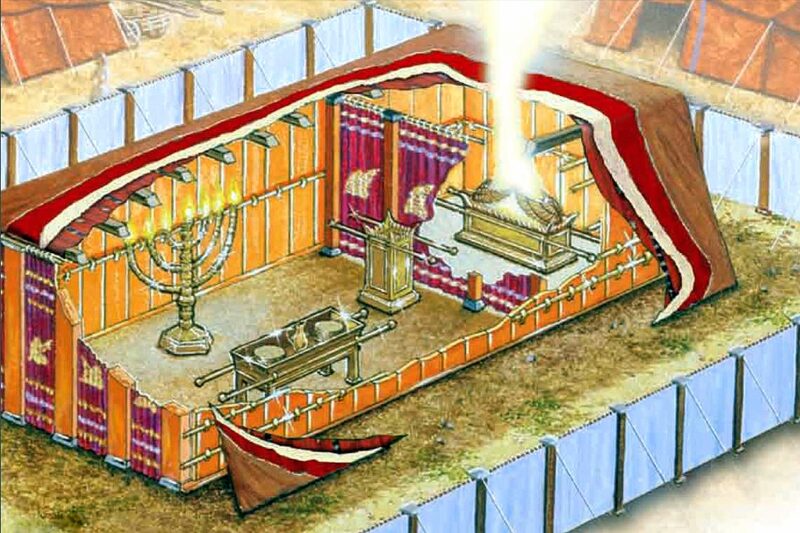The Spiritual Meaning of the Tabernacle
A tabernacle is where the Israelites have expressed their faith and devotion to God since the exodus from Egypt.
It was not just a physical structure but a spiritual one with immense spiritual significance.
In this article, we’ll explore the spiritual meaning of the tabernacle and its relevance in understanding our relationship with God.
Divine Presence and Worship
The tabernacle was used to bring people closer to God through worship and sacrifice.
According to tradition, an invisible pillar of fire descended upon the tabernacle when it was erected, signifying that God had chosen it as His dwelling place among His people.
This presence enabled them to approach Him through prayer and offerings.
They experienced His divine protection and unfailing love and mercy through its walls.
Symbol of Redemption and Salvation
The tabernacle was associated with important biblical stories such as Moses receiving the Ten Commandments on Mount Sinai or Elijah’s victory over pagan prophets on Mount Carmel.
These events demonstrate how it symbolized redemption from slavery in Egypt and salvation through faith in God’s promises.
Sanctuary of Healing and Forgiveness
In addition, the tabernacle served as a healing center for those who were sick or burdened by guilt or sinfulness – a sanctuary where they could find forgiveness, peace, and hope.
The sacrificial lamb represented sacrifice for sin, while the palm tree represented joy in times of distress.
All these elements reminded worshippers about God’s power over evil forces and prepared them for life’s journey ahead.
Connection to the Sacred and Holy
The tabernacle also connected worshippers to something more sacred than themselves: Holiness personified by God himself!
This profound connection with holiness helped strengthen their faith in Him even during difficult times when He seemed far away or unreachable.
Through this encounter with holiness, worshippers found strength within themselves; it encouraged them to follow Him wherever He took them on their spiritual journeys.
Spiritual Journey and Transformation
Perhaps most importantly, the tabernacle provided worshippers with a transformational experience that profoundly changed their lives!
By participating in rituals at its premises, they learned valuable lessons on humility, obedience, justice, and courage – lessons that continue to inspire us today!
House of Prayer
The tabernacle was also used for prayer and meditation, where worshippers could approach God in an intimate and secluded space.
It was filled with reverence and awe, providing them with a sense of unity and closeness to Him.
Holiest Place on Earth
As the holiest place in Israelite history, it was considered the only place holy enough to house the Ark of the Covenant – a sacred container containing the Ten Commandments.
This made it even more special for those who worshiped there, knowing that such a powerful presence sanctified it.
Offering Gifts to God
The tabernacle wasn’t just about worshipping and offering gifts to God.
As part of their rituals, people would bring their first fruits, animals, and other resources as sacrifices or offerings at the altar.
These offerings were seen as tokens of gratitude and appreciation for all His blessings.
Rituals Performed Regularly
Also among its rituals were regular festivals honoring God’s continual presence in their lives.
The major ones are Passover, Pentecost, and Tabernacles – each commemorating different occasions or moments related to divine providence.
Such events helped deepen the spiritual connection between people and their Creator while allowing them to express their love for Him through devotion and celebration.
Conclusion
In conclusion, the tabernacle is an enduring symbol of faith, hope, and salvation passed down through generations.
Its spiritual significance teaches us the power of holiness and obedience, while its rituals help us to understand our relationship with God more deeply.
Through its walls, we can still experience His divine protection and mercy and remember how He always provides for His people in times of need.







